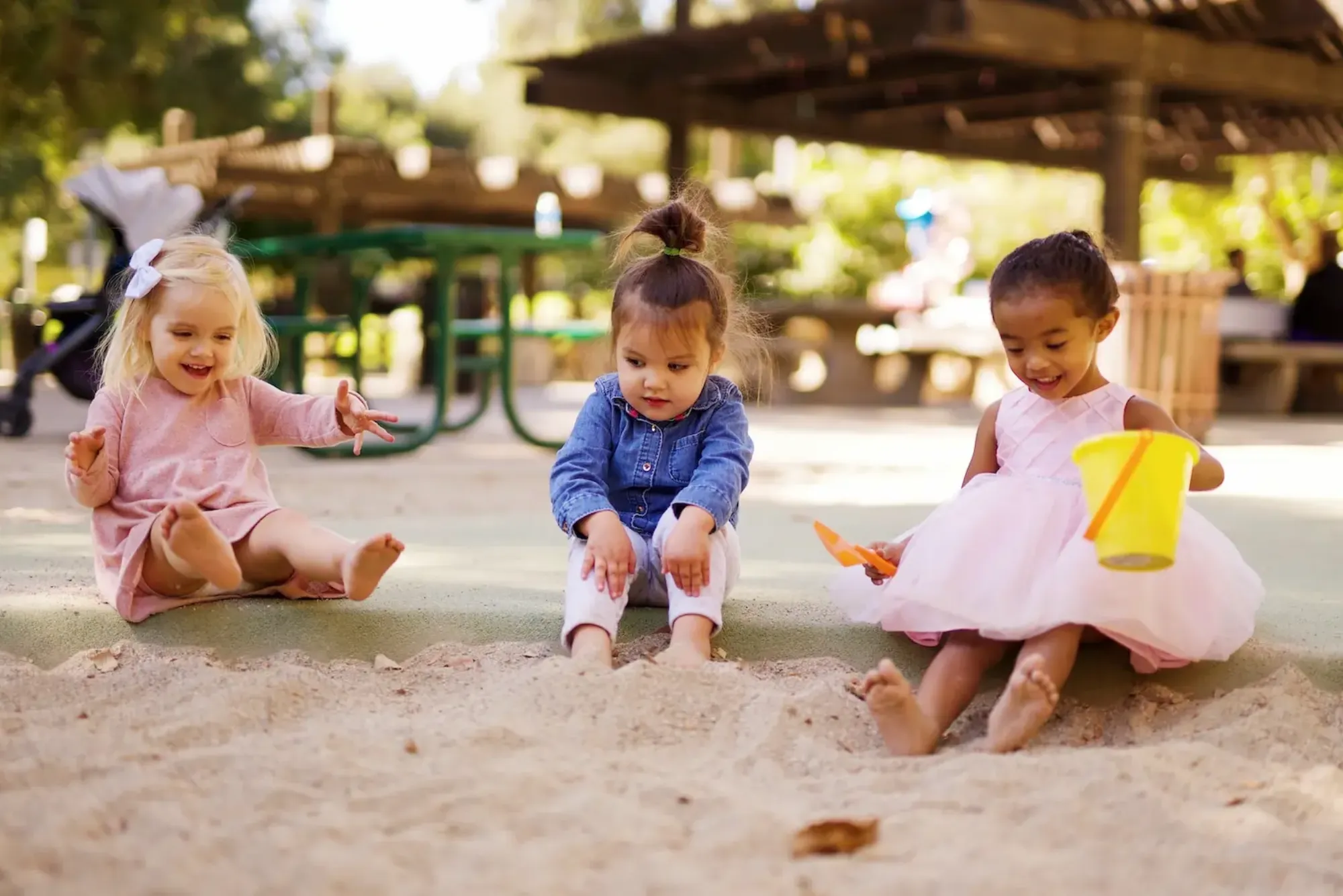Child development is a broad field that encompasses the physical, cognitive, emotional, and social growth that children undergo as they mature. Understanding these stages and factors is crucial for parents, caregivers, and educators to provide the best support and environment for children to thrive.
Stages of Child Development
Infancy (0-2 Years)
Infancy is the first stage of a child’s life, marked by rapid physical and cognitive growth. During this period, babies begin to form their first bonds with caregivers, develop motor skills such as rolling over, crawling, and walking, and begin to communicate through crying, cooing, and facial expressions. The brain develops at an astonishing rate, and the foundation for emotional and social development is laid down in these early years.
Early Childhood (3-6 Years)
Early childhood is a time when children develop a sense of independence and start to interact with their environment more meaningfully. During these years, children gain greater control over their physical movements, including improvements in both gross and fine motor skills. Language development also accelerates, allowing children to express themselves more clearly. Emotionally, children begin to learn how to navigate friendships, express their feelings, and understand social norms.
Middle Childhood (7-12 Years)
In middle childhood, children’s cognitive abilities continue to grow. They begin formal education and start to develop critical thinking skills. This is a time when children become more adept at problem-solving, reasoning, and understanding abstract concepts. Socially, peer relationships become more significant, and children start to learn the importance of teamwork, cooperation, and handling conflicts. This stage also marks a greater understanding of self-identity and emotional regulation.
Adolescence (13-18 Years)
Adolescence is the period of transition from childhood to adulthood. During these years, physical growth accelerates with puberty, and teenagers experience a variety of emotional challenges as they begin to shape their identity. Intellectual development also reaches new heights as teens begin to think more critically and independently. This is a time of increased independence, peer influence, and exploration of career and future goals. The emotional rollercoaster that comes with adolescence requires strong guidance and support from adults.
Factors Affecting Child Development
Genetics and Heredity
A child’s genetic makeup plays a significant role in their physical traits and can also influence cognitive abilities, personality, and susceptibility to certain health conditions. While genetics provide a foundation, it’s the interaction with the environment that shapes how these genetic traits manifest.
Nutrition and Health

Proper nutrition is critical in the early years as it fuels a child’s brain development and physical growth. Malnutrition can lead to developmental delays, especially in cognitive and physical skills. Regular health checkups and maintaining overall wellness are essential for supporting optimal development.
Environment and Parenting
The environment in which a child grows up significantly impacts their development. A safe, nurturing environment fosters growth, while neglectful or abusive environments can impede it. Parenting styles, such as authoritative (supportive but firm) or authoritarian (strict and controlling), also shape how children interact with others and view the world.
Social Influences (Peers, Media, School)
Children’s social interactions with peers, teachers, and the media can have a profound impact on their social development. Positive peer relationships can build confidence and social skills, while negative experiences such as bullying can hinder self-esteem. Exposure to various types of media, especially violent or inappropriate content, can affect a child’s behavior and worldview.
Cognitive Development in Children
Theories of Cognitive Development
Cognitive development refers to how children think, learn, and understand the world around them. Jean Piaget’s theory of cognitive development suggests that children go through four stages of development, each marked by different abilities in reasoning and understanding. Lev Vygotsky’s theory emphasizes the importance of social interactions and language in cognitive development.
Milestones of Cognitive Development
During the first few years, infants start recognizing faces, voices, and objects, laying the groundwork for memory and learning. By early childhood, children can solve simple problems, use language to express thoughts, and understand concepts such as time and space. As they move into middle childhood, children develop the ability to reason logically and think more abstractly, and by adolescence, they can think critically and consider multiple perspectives.
How to Support Cognitive Growth in Children
Parents can encourage cognitive development by providing stimulating activities, such as reading, puzzles, and hands-on learning experiences. Asking open-ended questions, allowing time for creative play, and providing exposure to different environments can also help strengthen cognitive abilities.
Emotional and Social Development
Emotional Regulation and Awareness
Emotional development is as important as cognitive development. Children must learn how to identify their feelings, express them appropriately, and regulate their emotions. Early childhood is a time when children learn basic emotional expressions, while middle childhood involves refining emotional control, particularly in response to social situations.
The Role of Play in Social Development
Play is not just fun; it is a vital aspect of social and emotional development. Through play, children practice skills such as sharing, teamwork, and negotiation. It also helps them understand empathy and learn how to resolve conflicts. Unstructured playtime allows children to experiment with different roles and scenarios, promoting creativity and social intelligence.
Building Empathy and Social Skills
As children grow, their ability to understand and empathize with others develops. Encouraging positive peer interactions, teaching conflict resolution strategies, and modeling empathy helps children build strong social skills that are essential for forming healthy relationships throughout life.
Dealing with Bullying and Peer Pressure
As children enter school, they may face challenges like bullying and peer pressure. It’s crucial for parents and teachers to foster open communication, build children’s self-esteem, and teach them how to assert themselves in situations of conflict.
Physical Development
Gross and Fine Motor Skills
Physical development includes both gross motor skills, like running and jumping, and fine motor skills, like drawing or using utensils. In the early stages, children refine these skills through practice and repetition. Encouraging activities such as sports, dance, and arts and crafts can help develop both types of motor skills.
Physical Milestones

Throughout childhood, children reach various physical milestones, from lifting their heads as infants to riding bikes in their later years. Tracking these milestones helps parents ensure their child is developing appropriately.
Importance of Physical Activity and Play
Physical activity is crucial for overall health and development. Active play, such as running, climbing, and playing games, not only strengthens muscles but also improves coordination and balance. It also plays a role in emotional well-being by releasing endorphins that enhance mood.
Language and Communication Development
Language Milestones
Language development begins as infants start babbling and progresses to saying their first words around one year of age. By age three, children begin to form sentences and express their needs and thoughts more clearly. As children grow, their vocabulary expands, and they start using language for more complex ideas and social interactions.
How Children Learn to Speak and Understand Language
Children learn to speak and understand language through exposure and interaction. Talking to children regularly, reading books, and engaging in conversations help reinforce language skills. Social interactions, both with adults and peers, also play an essential role in language development.
Supporting Early Literacy and Communication Skills
Parents can support language development by reading to children, encouraging them to ask questions, and providing opportunities for conversation. Singing, storytelling, and exposing children to a variety of language experiences all promote early literacy and communication skills.
Supporting Your Child’s Development
Creating a Positive Environment
Creating a nurturing and stimulating environment is key to fostering a child’s growth. Ensuring that children have access to age-appropriate activities, educational toys, and a safe space to explore helps them develop in all areas—cognitive, emotional, physical, and social.
Promoting Healthy Habits and Routines
Establishing healthy routines and habits is essential for children’s development. Regular meal times, sufficient sleep, and a balanced diet contribute to overall well-being. Encouraging good hygiene practices and physical activity also supports physical growth.
Encouraging Learning and Exploration
Allowing children to explore their interests and curiosities promotes a love of learning. Whether through structured activities or spontaneous play, exploration helps children develop critical thinking and problem-solving skills.
Importance of Bonding and Attachment
Strong emotional bonds with caregivers provide the security children need to explore the world. Consistent care, love, and support help children feel safe and valued, which is essential for healthy emotional and social development.
Challenges in Child Development
Developmental Delays and Disorders
Some children may face developmental delays or disorders that affect their growth. Early intervention and professional support are crucial in addressing issues such as ADHD, autism spectrum disorder, and learning disabilities.
Managing Behavior Problems
Behavioral issues like tantrums, aggression, or defiance can arise during childhood. Understanding the root cause of these behaviors and employing consistent, positive discipline strategies can help children develop better self-control and emotional regulation.
Support Systems and Resources for Parents
Parents should not hesitate to seek professional help if they notice developmental concerns. Early childhood educators, pediatricians, and therapists can provide valuable support and guidance.
Child development is a dynamic and ongoing process that shapes a child’s future. By understanding the stages of development, the factors that influence growth, and the ways to support a child’s physical, emotional, cognitive, and social well-being, parents and caregivers can help children reach their full potential. It’s a lifelong journey that requires patience, understanding, and commitment, but the rewards are immense for both children and the adults who nurture them.
FAQs (Frequently Asked Questions)
- When do children start walking?
- Most children begin walking between 9 and 15 months of age.
- How can I support my child’s emotional development?
- Encourage open communication, provide a safe and supportive environment, and model healthy emotional regulation.
- What are some signs of developmental delays?
- Delayed speech





